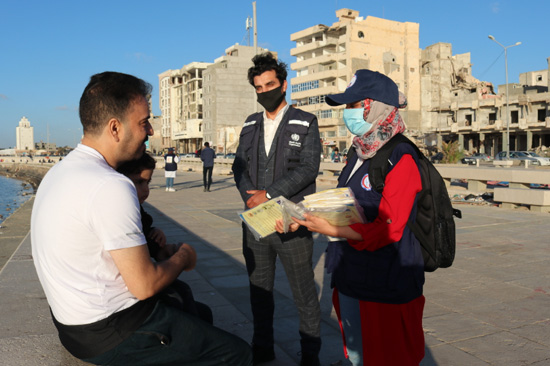
Tripoli, 15 July 2021 - Over the past week, almost 11 000 new cases of COVID-19 and 30 deaths have been reported in Libya, and new cases continue to be reported daily. The total official number of deaths from COVID-19 has surpassed 3200, but the real number is likely to be much higher than indicated in official reports.
While a COVID-19 vaccine will protect you from serious illness and possible death, WHO recommends that all Libyans, including those who have been vaccinated, continue to comply with the precautionary measures below:
1. Wash your hands frequently with soap and water or an alcohol-based hand sanitiser.
2. Maintain safe physical distancing of at least 1.8 metres.
3. Wear a mask at all times and make sure it covers your nose, mouth and chin.
4. Cover a sneeze or cough with a tissue or bent elbow, and immediately dispose of tissues in a closed-lid bin. Avoid touching your eyes, nose and mouth.
5. Avoid physical meetings or social gatherings of more than 4-5 people. If you must attend or organize gatherings of up to 4-5 people, strictly follow rules 1 to 4 above AND:
a. Brief guests about COVID-19 precautions before the event starts. During the event, remind guests of these precautions and ensure they are followed.
b. Choose outdoor venues over indoor spaces – if indoors, ensure the area is well ventilated.
c. Provide all necessary supplies: sinks for washing hands, hand sanitizer or soap and water, tissues, closed-lid bins, distance markers and masks.
6. In the home and at the office: keep all places clean and tidy, wipe down and disinfect tables and hand tools before and after use. Strictly follow WHO guidance on cleaning and disinfecting surfaces in non-health care settings.
7. Do not come to work if you experience any COVID-19 symptoms. Stay home and contact your local physician for advice and instructions.


